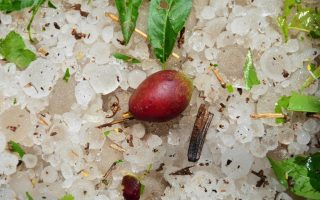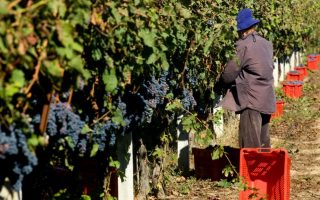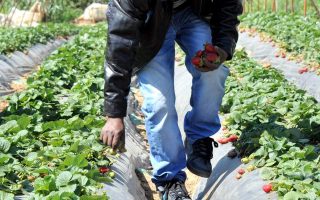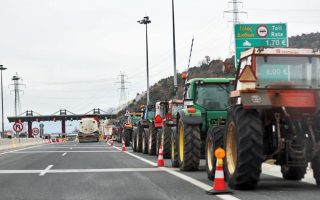Wild weather patterns hitting summer crops hard across Greece
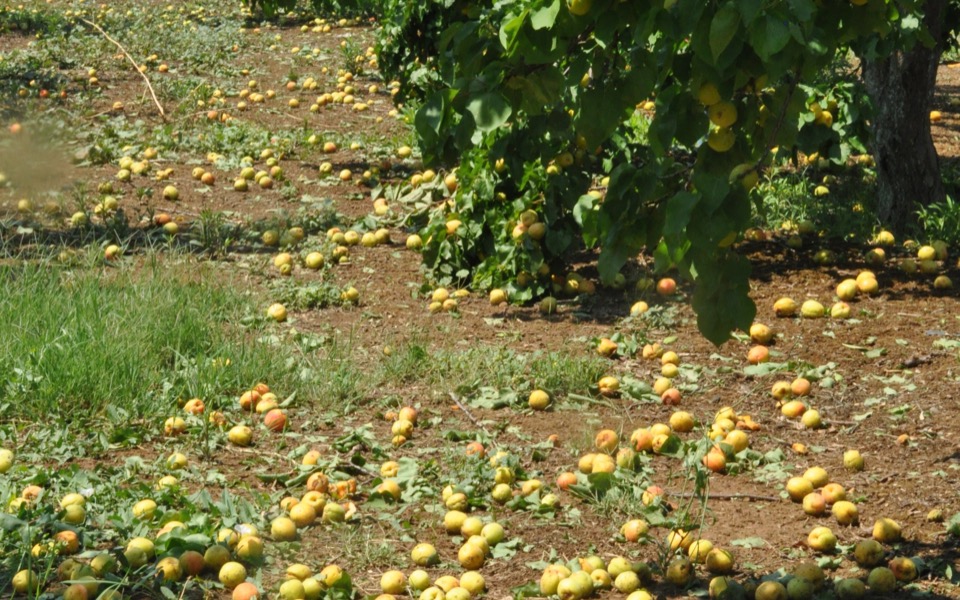
A destructive combination excessive rainfall and extremes of heat and cold has caused tremendous damage to many crops across Greece this summer. “How can the trees handle temperatures going from 40 degrees Celsius down to 14C within just two days? We have air conditioning – they don’t,” the president of the Imathia Farmers’ Cooperative, Christos Giannakakis, said to Kathimerini.
Farmer-members of the cooperative in the Western Macedonia region of northern Greece primarily grow peaches and cherries. Meanwhile in Attica, grapevines and other crops were severely affected by a heat wave that hit earlier in the summer.
Farmers say weather patterns in recent years have been unprecedented and blame climate change. The Greek Agricultural Insurance Organization (ELGA) is unable to pay for all the crop damage farmers across the country have sustained. “We ask to be compensated, but despite the fact that the law stipulates it, ELGA is trying to avoid it by interpreting certain provisions differently,” says Giannakakis.
According to the Pomology Institute of Naoussa, more than 90 millimeters of rain fell on the plains of Imathia within just 48 hours on July 16 and 17. That’s compared to an average monthly rainfall for July of just 33 millimeters. “The heavy rains caused a lot of fruit to fall from trees prematurely and shrivel up,” says Giannakakis.
Much of this year’s cherry crop in northern Greece had already suffered damage from heavy rains in late May and early June, just before the harvest period. Up till then, all signs had been pointing to a good year.
Across Attica, 40 to 50 percent of the Savatiano grape crop failed due to a heat wave in late June that sent temperatures as high as 45C. “The damage was widespread and we’re unsure whether it’s even worth harvesting what’s left when the time comes in early September,” says Stamatis Georgakis, president of the Koropi wine cooperative.
Similar hardship has also hit raisin producers this year. “Over the last two years we’ve seen an increase in demand for raisins. It’s a shame to lose customers now because of this,” says Constantinos Katselis, president of the Agricultural Cooperative of Messinia, in the Peloponnese.
